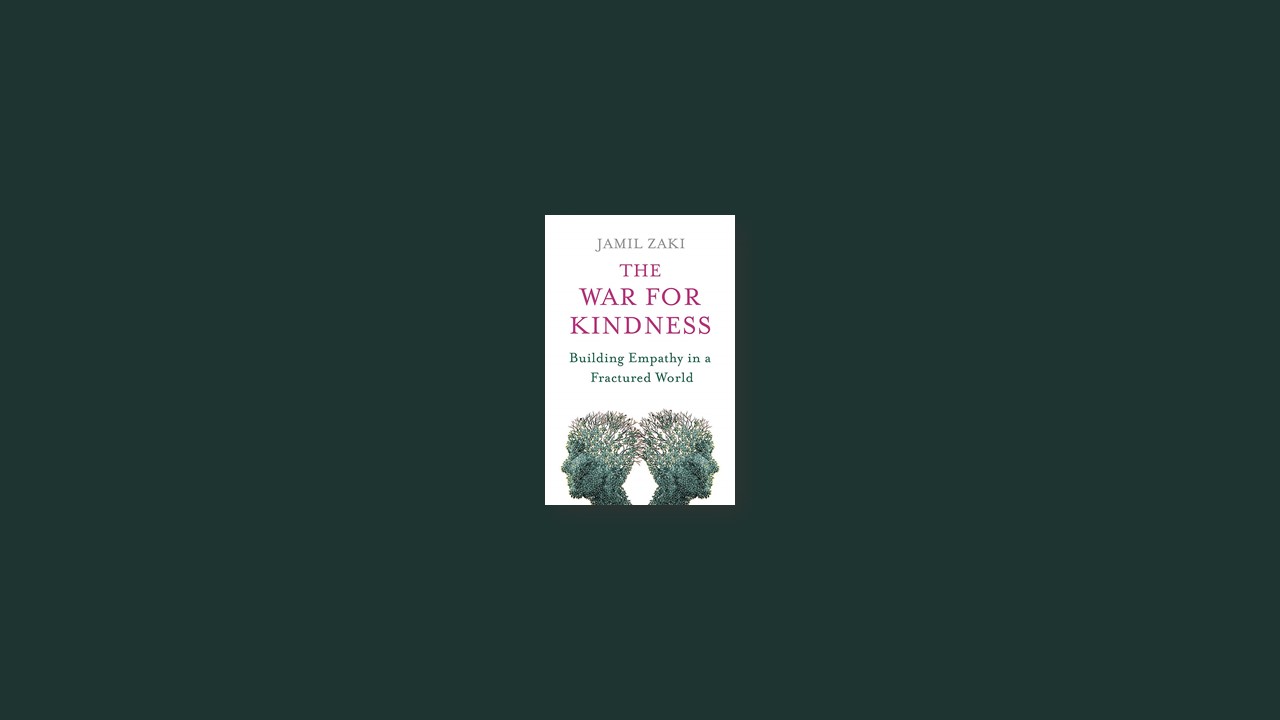The Surprising Mobility of Human Nature
The earth and sky are forever changing, but our understanding of ourselves has proven more stubborn. Sure, we get old, our bones stiffen, and our hair turns gray, but our essence stays the same. Over the centuries, the supposed location of that essence has shifted. Theologians placed it in the eternal human soul; earthlier philosophers focused on natural character and virtue. In the modern era, human essence has become thoroughly biological, grounded in our genes and coded into our bodies.
No matter where human nature resides, it is assumed to be constant and immutable. Let’s call this belief “psychological fixism,” because it views people the way geologists once saw the continents. Fixism can be comforting. It means we can know who others truly are, and know ourselves as well. But it also limits us. Cheaters will always cheat, and liars will always lie.
But science did not need to change this decree, only to realize it was wrong. One of the first discoveries to lead the way came about thirty years ago, through the study of songbirds. Each spring, male finches and canaries learn new tunes to woo potential mates. Scientists discovered that as these birds built their repertoire, they also sprouted thousands of new brain cells a day. Over the years, researchers spotted new neurons in adult rats, shrews, and monkeys as well.
Skeptics still wondered whether adult humans could grow their brains. Then a breakthrough came from an unlikely source: the Cold War. In its early years countries tested their nuclear weapons regularly. Then, following the test ban treaty of 1963, they stopped. Levels of radiocarbon (14C), an isotope produced by nuclear detonation, spiked and then plummeted just as quickly. Radiocarbon makes its way into the plants and animals we eat, and what we eat makes its way into new cells we produce. Neuroscientists such as Kirsty Spalding took advantage of this. Borrowing from archaeologists, Spalding “carbon-dated” brain cells based on their levels of 14C, tagging the year they were born. Surprisingly, she found that people grow new neurons throughout their lives.
In other words, the brain is not hardwired at all. It changes, and these shifts are not random. MRI studies have now repeatedly shown that our experiences, choices, and habits mold our brains. When people learn to play stringed instruments or juggle, parts of their brain associated with controlling their hands grow. When they suffer chronic stress or depression, parts of their brain associated with memory and emotion atrophy.
Choosing Empathy
People can choose not just to turn their emotions up or down but also to cultivate particular feelings that are useful in the moment. Happiness won’t help a boxer going into the ring, but anger might. For a beggar seeking others’ sympathy, sadness is wiser than fear. The psychologist Maya Tamir has found that people gravitate toward handy emotions, even when they feel bad. In her studies, people choose angry music to psych themselves up before a hostile negotiation, but sad music before asking for a favor. Emotions really do work like tug-of-war: Whether you realize it or not, you’re constantly weighing the costs and benefits of sadness, or joy, or anxiety, and choosing the feelings that serve your purpose.
Empathy is no different. Yes, it can occur automatically. But more often, we choose or avoid it depending on whether it seems useful. There are obvious reasons to choose it. For one, it can feel good, because positive emotion is contagious. We are lifted up by the happiness around us like race cars drafting off one another’s momentum. Empathy also feeds our deep-seated need for relationships. During my childhood, it was a way to feel closer to my parents amid family turmoil, so I worked at it. Likewise, when people want to connect—for instance, when they’re around attractive or powerful individuals—they turn up their empathy and read others more clearly as a result.
Hatred Versus Contact
If hatred is a disease, it is mutating. As our culture cures itself of one strain, new ones take its place. Over recent decades, Americans have accepted interracial and same-sex marriage, but political animosity has soared. In 1960, Americans were asked how they would feel if their child married someone of the opposite political party. Five percent of Republicans and 4 percent of Democrats said they’d be displeased. By 2010, this number had ballooned, to half of Republicans and a third of Democrats. As our ideals drift further apart, members of each party like each other less and discriminate against each other more. We also show little interest in each other’s perspectives. In one recent study, both Republicans and Democrats paid money to not listen to the other side’s opinions.
People effortlessly carve the world into insiders and outsiders. Divisions between groups can be biological (old versus young), traditional (Real Madrid versus Barcelona), momentary (one pickup basketball team versus another), or even made up. Assemble a group of strangers, give half of them blue armbands and the other half red ones, and they will build new prejudices on the fly, judging their fellow reds (or blues) as kinder, more attractive, and more capable than the sinister blues (or reds) on the other side. Boundaries between insiders and outsiders destroy virtually every type of empathy scientists can measure. When people encounter outsiders in pain, they report less empathy, feel less anxious, and imitate the person’s facial expressions less than when the victim is an insider.
The Stories We Tell
As it turns out, sitting around is one of our most important jobs. Idle hands find trouble, but idle brains are free to daydream: planning ahead, reminiscing, and imagining. The brain’s mystery regions are a steering system for untethering. Instead of reacting to the world outside, they project us into the past, future, and even alternate realities.
These same parts of the brain also play a crucial role in empathy. This makes sense, because empathy is a kind of untethering. When you imagine what your mom thought of the last email you sent her, or what victims of a recent mass shooting might be feeling, you take a mental trip into their world. The more you engage the brain’s untethering system, the deeper you can go, and the better you understand what other people think or feel.
This is true even when those people are made up. Untethering is at the heart of a strange, venerable human pastime. Since people first cozied up around a fire together, we’ve told stories: first out loud, now on paper and screens. Surrounded by real people, we spend much of our free time pretending that people who never existed experienced things that never happened. Recently, psychologists have begun telling a new story about stories. More than a diversion, narrative arts are an ancient technology: performance-enhancing drugs for untethering. Stories helped our ancestors imagine other lives, plan for possible futures, and agree on cultural codes. In the modern world, they help in a new way: flattening our empathic landscape, making distant others feel less distant and caring for them less difficult.
Caring Too Much
One psychologist who has studied medical empathy for decades writes that “understanding binds, but feeling blinds.” He counsels caring professionals to adopt what he calls “detached concern”—a Vulcan sort of goodwill. More than a coping mechanism, this is the industry standard, according to the oncologist Anthony Back: “In the idealized professional model,” he writes, “physicians’ feelings are extraneous.” Liz rejects this model. “That to me would not be a satisfying way to practice….Being honest and open about how a patient has affected you as an individual can only give more meaning to them.” She’s seen dozens of infants die, and she cries every time.
But emotional investment can bring caregivers to strange places. Samantha once spent seven months treating a baby who had been abandoned at birth. She began buying outfits for him and thinking about him constantly even when not at work. When he became healthy enough to join a foster family, Samantha was happy for him, but also heartbroken. What’s worse, she found it hard to be present for her other patients. “I kind of resented them for not being the baby that I wanted to be taking care of.” She was ashamed of feeling that way (“It’s the opposite of what you’re there to do”), but for a time, her connection to one baby had overwhelmed everything else.
Over-empathizing can tempt caregivers to take heroic lifesaving measures even when they are likely to fail, or to sugarcoat bad news to avoid causing pain. One ICN doctor tells about a baby he is treating who will likely die. The multispecialty team has hinted at this, but not clearly enough for the parents to truly get the prognosis. “They’re such nice people,” the physician says, “and you don’t want to tell them such bad news.”
Empathic caregivers can also develop PTSD-like symptoms—not from their own pain, but from their patients’. A quarter of nurses in neonatal intensive care report “secondary trauma”—sleeplessness, flashbacks, and exhaustion—at about twice the rate of nurses in other specialties. Secondary trauma often gives way to burnout: general exhaustion and loss of meaning. One in three intensive care professionals suffers burnout, a much greater proportion than in other branches of medicine. Empathic professionals bear the brunt of these problems. They become depressed more often than their less empathic peers, and they are more likely to blame themselves when patients worsen or die.
The Future of Empathy
Empathy—in its ancient form—is built on self-preservation. We care for our children because they carry our genes, and for our tribe because they offer sustenance, sex, and safety. Building concern for a future that has forgotten us runs counter to our Darwinian impulses. But there are still ways to cultivate that concern. If we can, we’ll be evolving our empathy in real time, into something larger and more enduring.
It’s easy to live in a less intentional way. Building a new sort of empathy takes effort and sacrifice, for people who might not repay it. But in the face of escalating cruelty and isolation, we are fighting for our moral lives. Doing what’s easy is seldom worthwhile, and in moments like these, it’s dangerous. We each have a choice, and the sum of our choices will create the future.
What are you going to do?


